SACRAMENTS
In the Catholic faith, there are sacred rituals instituted by Christ, serving as outward signs of inward grace, and helping individuals grow in holiness. These seven visible rites- called Sacraments- convey God's grace and foster spiritual life, marking key moments and transitions in a Catholic's journey of faith. We categorize our sacraments into three categories, scroll below to learn more and discover how you can enter into the sacramental life of the Church through St. Stephen the Witness.
Sacraments of Christian Initiation
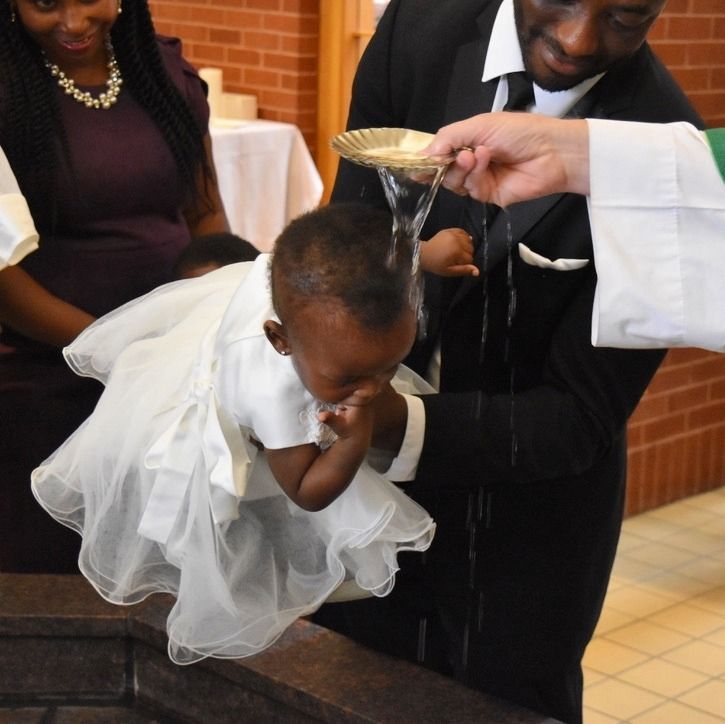
Baptism
The origin and foundation of Christian Baptism is Jesus. Before starting his public ministry, Jesus submitted himself to the baptism given by John the Baptist. The waters did not purify him; he cleansed the waters. . . . Jesus did not need to be baptized because he was totally faithful to the will of his Father and free from sin. However, he wanted to show his solidarity with human beings in order to reconcile them to the Father. By commanding his disciples to baptize all nations, he established the means by which people would die to sin – Original and actual – and begin to live a new life with God.
We are happy to prepare anyone- adults, college students, young people- to receive the graces of baptism, as well to walk with parents who wish to present their child for baptism! The gift of Baptism leaves a indelible (permanent) mark on ones soul, thus one baptism is enough (for the most part, contact for more details).
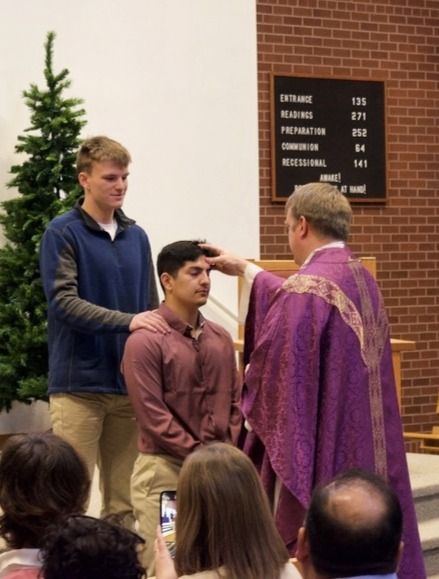
Confirmation
In the Sacrament of Confirmation, the baptized person is "sealed with the gift of the Holy Spirit" and is strengthened for service to the Body of Christ. The gifts of the Holy Spirit are wisdom, understanding, counsel, fortitude, knowledge, piety, and fear of the Lord. Confirmation leaves a indelible (permanent) mark on ones soul, as such this sacrament is only conferred once.
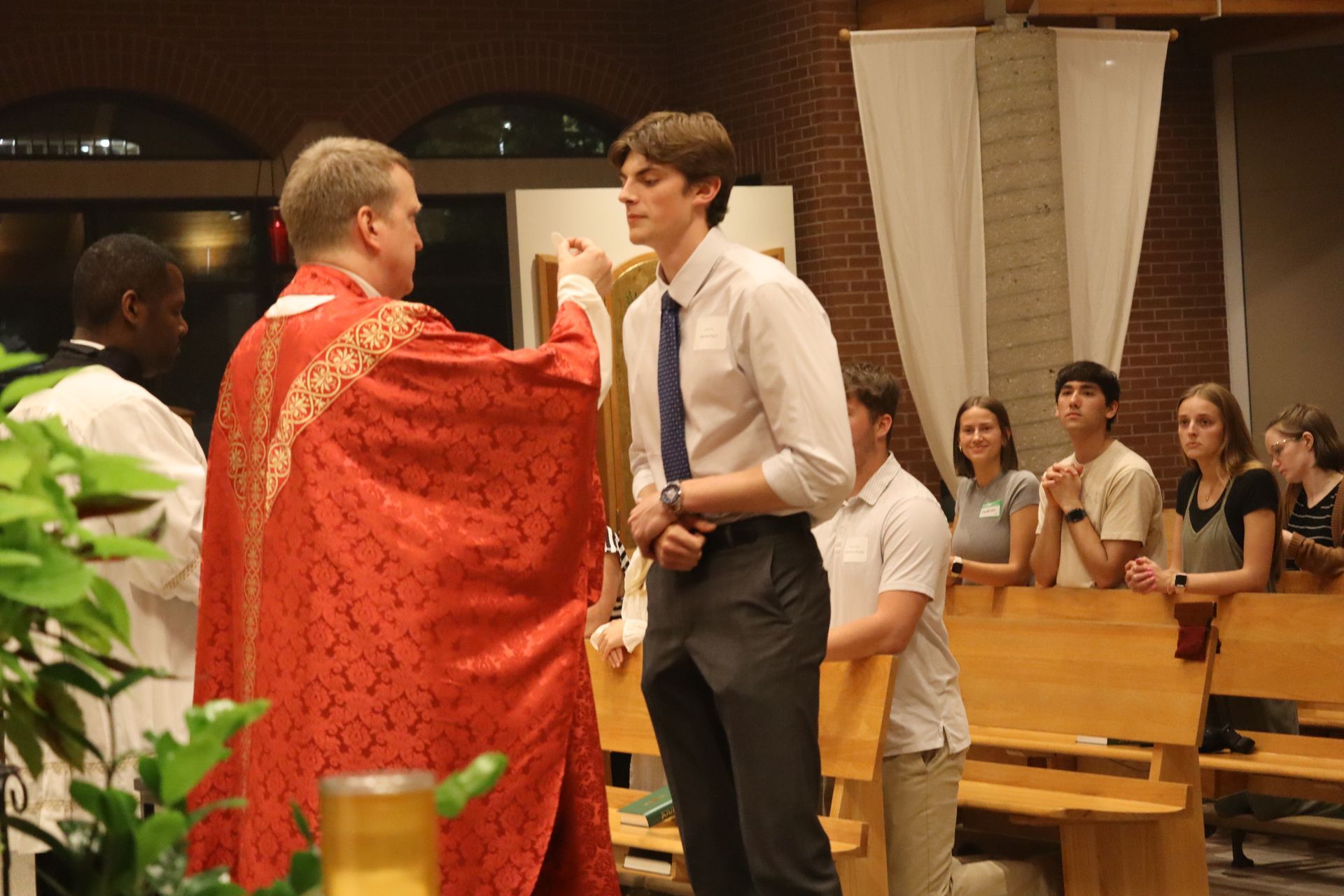
Eucharist
The Eucharist is the source and summit of the Christian life. The term “Eucharist” originates from the Greek word eucharistia, meaning thanksgiving.
In the celebration of the Eucharist, bread and wine become the Body and Blood of Jesus Christ through the power of the Holy Spirit and the instrumentality of the priest. The whole Christ is truly present -- body, blood, soul, and divinity -- under the appearances of bread and wine, the glorified Christ who rose from the dead. This is what the Church means when she speaks of the "Real Presence" of Christ in the Eucharist. Matthew 26:26-30, Mark 14:22, Luke 22:14-20, and John 6:22-59 are all bibical reference to this sacrament.
Contact us via the button below to gain more information.
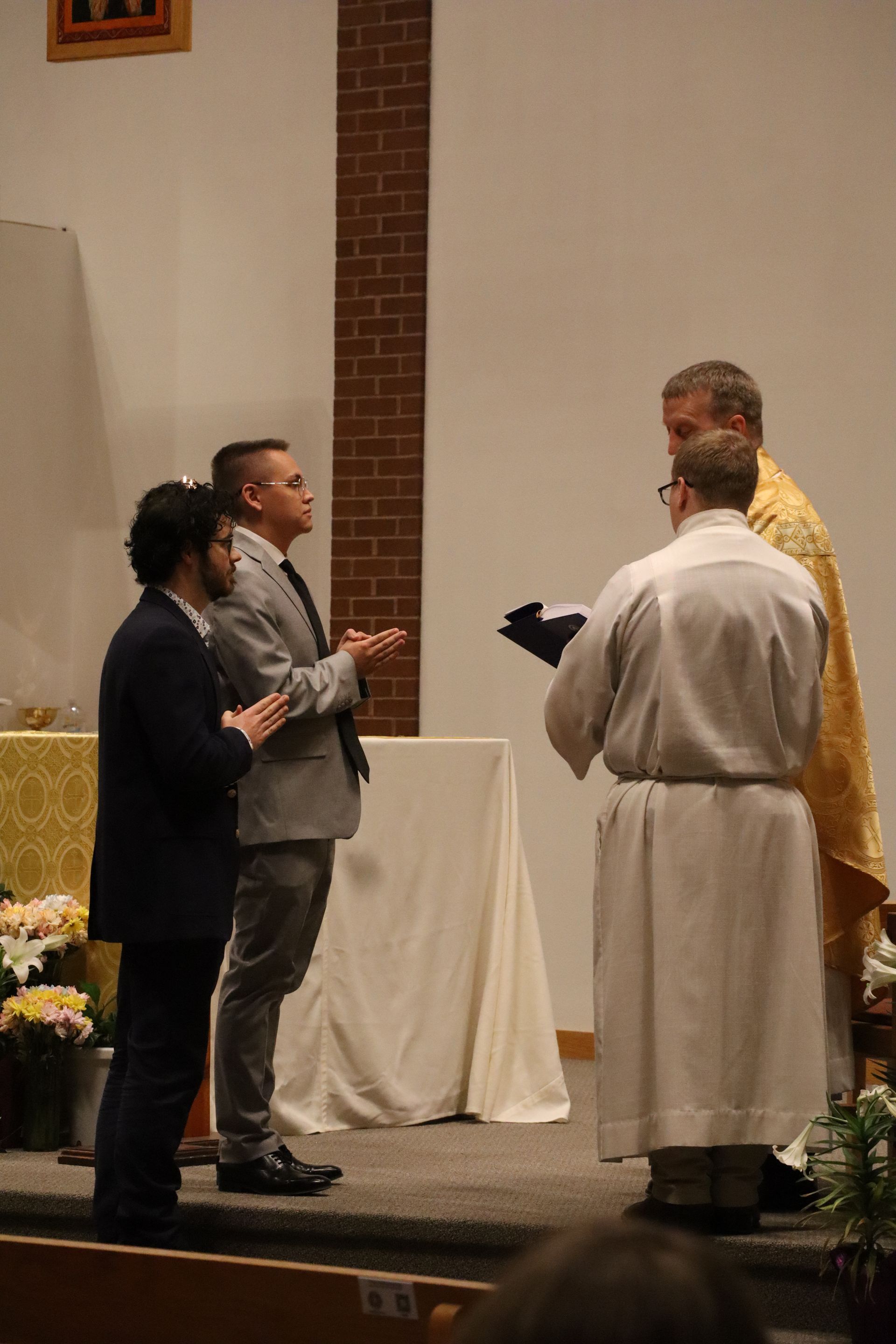
Reception into the Church
While not a formal sacrament, the Church has a rite in order for individuals already one with us through baptism to profess their faith in Christ Jesus and to promise to uphold the teaching of the Catholic Church.
Sacraments of Healing
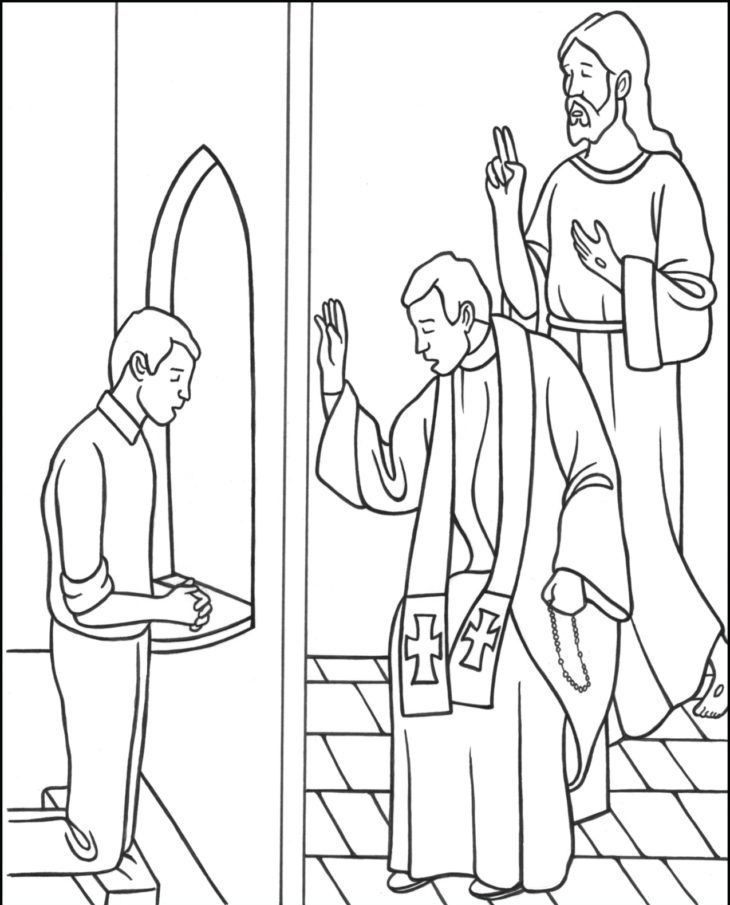
Reconciliation
The Sacrament of Reconciliation (commonly called Confession or Penance) is the method given by Christ to the Church by which individuals are freed from sins committed after receiving Baptism. Genesis 3:1-7, Leviticus 16:29-30, Isaiah 58:1-2 and John 20:23 are all references to the Bible that illustrate the responsibility we have to atone for our sin and be reconciled to the God. The role of the priest is to act in persona Christi, or in the person of Christ, to offer the words of forgiveness in the prayer of absolution.
The priest is bound by the Seal of the Confession, meaning all statements made by penitents during the course of confession is confidential, and this seal is absolute, even under the threat of incarceration or death to the priest or others.
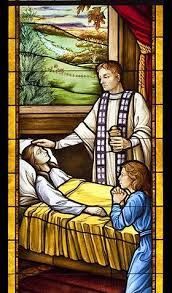
Anointing of the Sick
The Anointing of the Sick is a sacrament administered by a priest to someone who is ill or is elderly. It is a prayer of healing and comfort, often given in preparation for a serious illness, surgery, or when someone is at the point of death. The sacrament involves the priest laying hands on the person and anointing them with blessed oil on their forehead and hands, while praying for their healing.
This sacrament may be received many times throughout someone's life. Click the button below if interested in receiving the sacrament.
Sacraments of Service

Marriage
The Sacrament of Marriage, also known as Holy Matrimony, is a public sign and a covenant between a man, a woman, and God, signifying their commitment to a lifelong union and representing the union of Christ and the Church. It's a way for a couple to receive grace and strengthen their love, while also symbolizing God's love for his people.
A couple desiring this sacrament normally completes a compatability survey and does some pre-marriage formation. A different process would occur if the couple was previously married or married civicly seeking sacramental blessing.
Click the button below to discuss more.
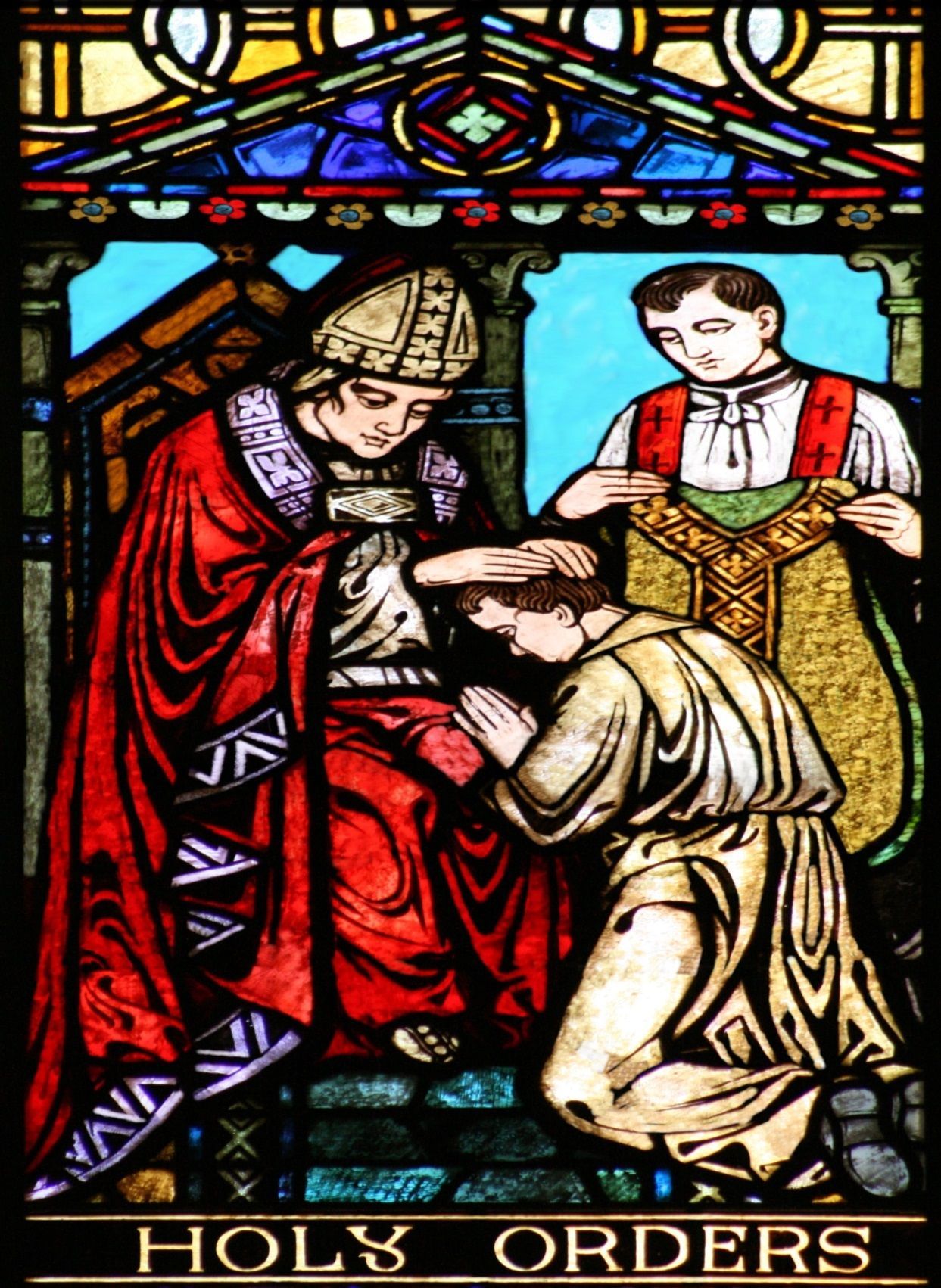
Holy Orders
Holy Orders is the sacrament through which the mission entrusted by Christ to his apostles continues to be exercised in the Church until the end of time: thus it is the sacrament of apostolic ministry. It includes three degrees: episcopate (bishops), presbyterate (priests), and diaconate (deacons).
Click the button more to discuss this sacrament.
Sacraments inquiry
Thanks!
One of our ministry team members will be in touch with you soon!
Please try again later.




